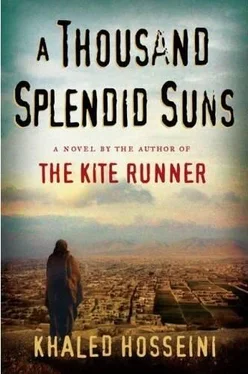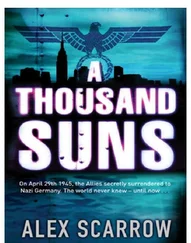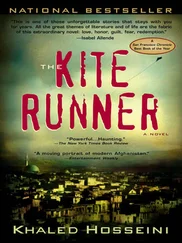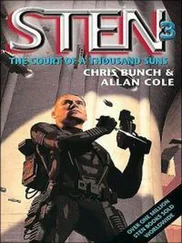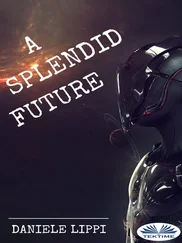"What's the sense schooling a girl like you? It's like shining a spittoon. And you'll learn nothing of value in those schools. There is only one, only one skill a woman like you and me needs in life, and they don't teach it in school. Look at me."
"You should not speak like this to her, my child," Mullah Faizullah said.
"Look at me."
Mariam did.
"Only one skill And it's this: tahamul . Endure."
"Endure what, Nana?"
"Oh, don't you fret about that, " Nana said. "There won't be any shortage of things."
She went on to say how Mil's wives had called her an ugly, lowly stone carver's daughter. How they'd made her wash laundry outside in the cold until her face went numb and her fingertips burned.
"It's our lot in life, Mariam. Women like us. We endure. It's all we have. Do you understand? Besides, they'll laugh at you in school. They will. They'll call you harami . They'll say the most terrible things about you. I won't have it."
Mariam nodded.
"And no more talk about school. You're all I have. I won't lose you to them. Look at me. No more talk about school."
"Be reasonable- Come now. If the girl wants-" Mullah Faizullah began.
"And you, akhund sahib, with all due respect, you should know better than to encourage these foolish ideas of hers. If you really care about her, then you make her see that she belongs here at home with her mother. There is nothing out there for her. Nothing but rejection and heartache. I know, akhund sahib. I know. "
Mariam loved having visitors at the kolba. The village arbab and his gifts, Bibi jo and her aching hip and endless gossiping, and, of course, Mullah Faizullah. But there was no one, no one, that Mariam longed to see more than Jalil.
The anxiety set in on Tuesday nights. Mariam would sleep poorly, fretting that some business entanglement would prevent Jalil from coming on Thursday, that she would have to wait a whole other week to see him. On Wednesdays, she paced outside, around the kolba, tossed chicken feed absentmindedly into the coop. She went for aimless walks, picking petals from flowers and batting at the mosquitoes nibbling on her arms. Finally, on Thursdays, all she could do was sit against a wall, eyes glued to the stream, and wait. If Jalil was running late, a terrible dread filled her bit by bit. Her knees would weaken, and she would have to go somewhere and lie down.
Then Nana would call, "And there he is, your father. In all his glory."
Mariam would leap to her feet when she spotted him hopping stones across the stream, all smiles and hearty waves. Mariam knew that Nana was watching her, gauging her reaction, and it always took effort to stay in the doorway, to wait, to watch him slowly make his way to her, to not run to him. She restrained herself, patiently watched him walk through the tall grass, his suit jacket slung over his shoulder, the breeze lifting his red necktie.
When Jalil entered the clearing, he would throw his jacket on the tandoor and open his arms. Mariam would walk, then finally run, to him, and he would catch her under the arms and toss her up high. Mariam would squeal.
Suspended in the air, Mariam would see Jalil's upturned face below her, his wide, crooked smile, his widow's peak, his cleft chin – a perfect pocket for the tip of her pinkie – his teeth, the whitest in a town of rotting molars. She liked his trimmed mustache, and she liked that no matter the weather he always wore a suit on his visits – dark brown, his favorite color, with the white triangle of a handkerchief in the breast pocket – and cuff links too, and a tie, usually red, which he left loosened. Mariam could see herself too, reflected in the brown of Jalil's eyes: her hair billowing, her face blazing with excitement, the sky behind her.
Nana said that one of these days he would miss, that she, Mariam, would slip through his fingers, hit the ground, and break a bone. But Mariam did not believe that Jalil would drop her. She believed that she would always land safely into her father's clean, well-manicured hands.
They sat outside the kolba, in the shade, and Nana served them tea. Jalil and she acknowledged each other with an uneasy smile and a nod. Jalil never brought up Nana's rock throwing or her cursing.
Despite her rants against him when he wasn't around, Nana was subdued and mannerly when Jalil visited. Her hair was always washed. She brushed her teeth, wore her best hijab for him. She sat quietly on a chair across from him, hands folded on her lap. She did not look at him directly and never used coarse language around him. When she laughed, she covered her mouth with a fist to hide the bad tooth.
Nana asked about his businesses. And his wives too. When she told him that she had heard, through Bibi jo, that his youngest wife, Nargis, was expecting her third child, Jalil smiled courteously and nodded.
"Well. You must be happy," Nana said. "How many is that for you, now? Ten, is it, mashallah? Ten?"
Jalil said yes, ten.
"Eleven, if you count Mariam, of course."
Later, after Jalil went home, Mariam and Nana had a small fight about this. Mariam said she had tricked him.
After tea with Nana, Mariam and Jalil always went fishing in the stream. He showed her how to cast her line, how to reel in the trout. He taught her the proper way to gut a trout, to clean it, to lift the meat off the bone in one motion. He drew pictures for her as they waited for a strike, showed her how to draw an elephant in one stroke without ever lifting the pen off the paper. He taught her rhymes. Together they sang:
Lili lili birdbath,
Sitting on a dirt path,
Minnow sat on the rim and drank,
Slipped, and in the water she sank.
Jalil brought clippings from Herat 's newspaper, Ittifaq-i Islam, and read from them to her. He was Mariam's link, her proof that there existed a world at large, beyond the kolba, beyond Gul Daman and Herat too, a world of presidents with unpronounceable names, and trains and museums and soccer, and rockets that orbited the earth and landed on the moon, and, every Thursday, Jalil brought a piece of that world with him to the kolba.
He was the one who told her in the summer of 1973, when Mariam was fourteen, that King Zahir Shah, who had ruled from Kabul for forty years, had been overthrown in a bloodless coup.
"His cousin Daoud Khan did it while the king was in Italy getting medical treatment. You remember Daoud Khan, right? I told you about him. He was prime minister in Kabul when you were born. Anyway, Afghanistan is no longer a monarchy, Mariam. You see, it's a republic now, and Daoud Khan is the president. There are rumors that the socialists in Kabul helped him take power. Not that he's a socialist himself, mind you, but that they helped him. That's the rumor anyway."
Mariam asked him what a socialist was and Jalil began to explain, but Mariam barely heard him.
"Are you listening?"
"I am."
He saw her looking at the bulge in his coat's side pocket. "Ah. Of course. Well. Here, then. Without further ado…"
He fished a small box from his pocket and gave it to her. He did this from time to time, bring her small presents. A carnelian bracelet cuff one time, a choker with lapis lazuli beads another. That day, Mariam opened the box and found a leaf-shaped pendant, tiny coins etched with moons and stars hanging from it.
"Try it on, Mariam jo."
She did. "What do you think?"
Jalil beamed "I think you look like a queen."
After he left, Nana saw the pendant around Mariam's neck.
"Nomad jewelry," she said. "I've seen them make it. They melt the coins people throw at them and make jewelry. Let's see him bring you gold next time, your precious father. Let's see him."
Читать дальше
